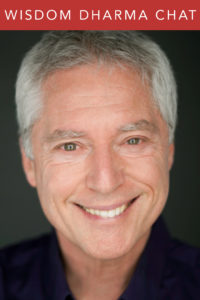
Lama Alan Wallace: Solitude and Resilience (#118)
Posted
This episode of the Wisdom Podcast, recorded live as a Wisdom Dharma Chat, features a conversation with Lama Alan Wallace, author, scholar, president of the Santa Barbara Institute for Consciousness Studies, and Founder, President, and Director of Contemplative Training at the Center for Contemplative Research. Lama Alan has also edited, translated, written, and contributed to more than forty books on Tibetan Buddhism, medicine, language, and culture, as well as the interface between science and religion.
In this conversation, recorded in 2020 during the COVID-19 pandemic, Lama Alan gives timely teachings on the benefits of inner and outer solitude. He offers advice on how to not feel like a victim of circumstances, but instead reframe periods of involuntary solitude as opportunities to slow down, practice cultivating the mind, and reassess both personal and societal trajectories. You’ll hear about this and so much more in this truly inspiring episode
You may also like: The Joy of Solitude: An Excerpt from Focused and Fearless by Shaila Catherine

Remember to subscribe to the Wisdom Podcast for more great conversations on Buddhism, meditation, and mindfulness. And please give us a 5-star rating in Apple Podcasts if you enjoy our show—it’s a great support to us and it helps other people find the podcast. Thank you!
About the Interviewee

Lama Alan Wallace is president of the Santa Barbara Institute for Consciousness Studies. He trained for many years as a monk in Buddhist monasteries in India and Switzerland. He has taught Buddhist theory and practice in Europe and America since 1976 and has served as interpreter for numerous Tibetan scholars and contemplatives, including H. H. the Dalai Lama. After graduating summa cum laude from Amherst College, where he studied physics and the philosophy of science, he earned his MA and PhD in religious studies at Stanford University. He has edited, translated, authored, and contributed to more than forty books on Tibetan Buddhism, medicine, language, and culture, and the interface between science and religion.
